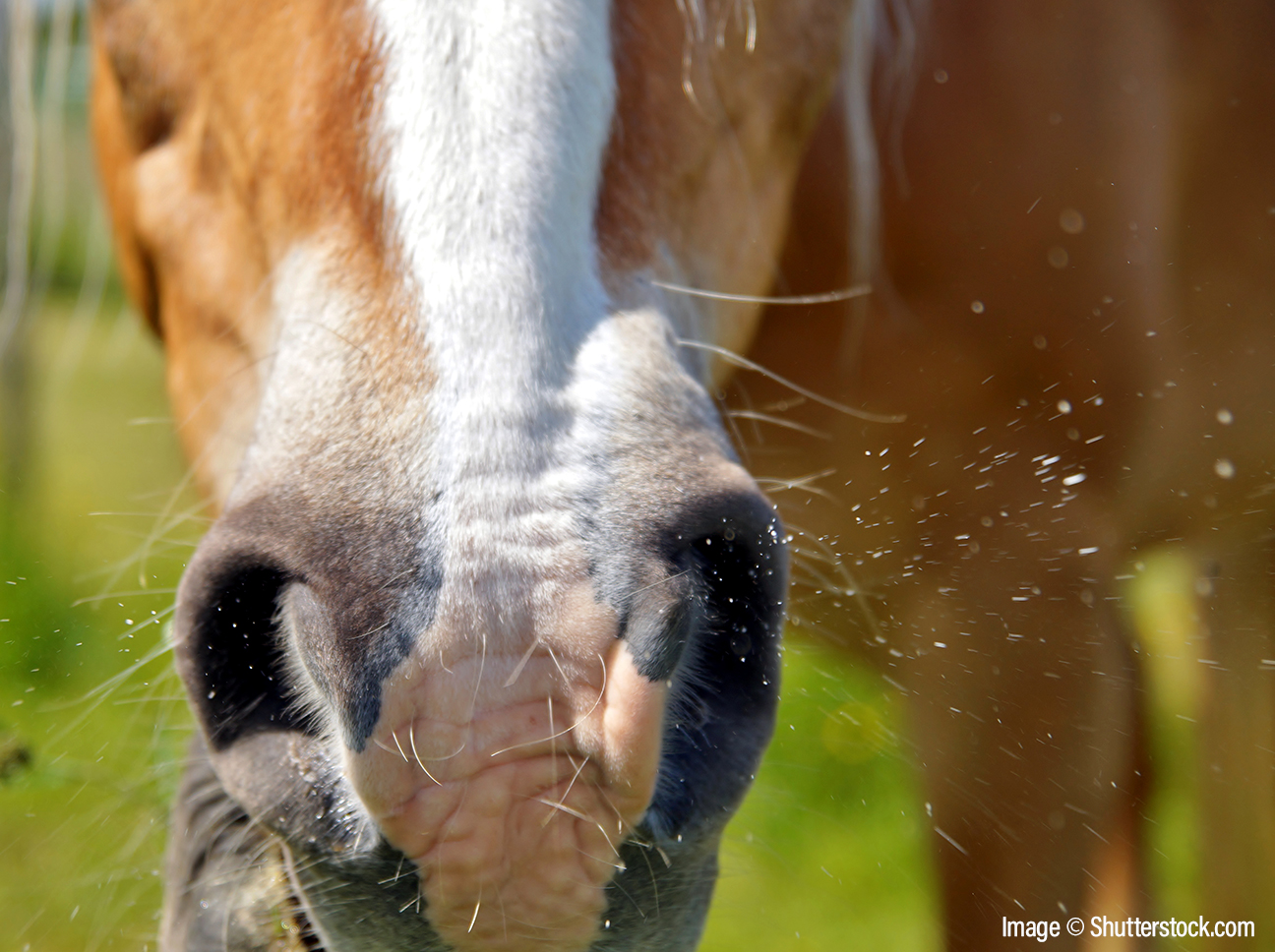Equine influenza is an important contagious respiratory disease of horses resulting from infection with influenza viruses (of the H7N7 or H3N8 subtype). The disease is characterised by high fever, depression, coughing, and nasal discharge and is often complicated by secondary bacterial infections occasionally leading to pneumonia and death. Influenza is an airborne virus travelling up to 5 km in favourable conditions. But horses can also become infected through direct contact with an infected horse or indirectly via people and equipment. Most horses will need a minimum of 6 weeks rest to recover from the virus.
The prevention and control of equine influenza depends heavily on vaccination and application of management regimes. Equilis Prequenza is currently our vaccine of choice. The vaccine is composed of subunits of the virus which promote an immune response, but does not give your horse the flu.
It is important to vaccinate only healthy horses, otherwise an adverse vaccine reaction is more likely. This is why the vets at DVEVC will listen to your horse’s heart and lungs, ask how your horse is and if any doubt, check your horse’s temperature prior to giving a vaccine.
With respect to young foals, the dam passes on maternally derived antibodies to protect young foals from disease during early life. So first vaccination in young stock is usually started at 5-6 months of age.
Equine Influenza is a Changing, Spreading Disease
You may have heard about the Australian outbreak of equine influenza that struck 50,000 horses in 2007, but did you know that several areas of the UK also had outbreaks that year? From Wales to New South Wales, equine influenza poses a threat to horses right around the globe, because the virus can change and spread so rapidly.
Wherever they are, no horse should have to suffer the misery of equine influenza – a disease that can cause high temperature, nasal discharge and harsh dry cough. More worrying, horses and ponies who suffer flu or herpes respiratory infections are much more likely to develop into dust allergy horses (equine asthma) in later life.
Is Your Horse at Risk?
The short answer – yes. Equine influenza poses a threat to every horse in the UK. The good news is that you can protect your horse with an appropriate vaccination programme.
If you have already vaccinated against equine influenza, it’s very important for your horse to have further booster injections to maintain effectiveness.
If you don’t keep to the vaccination schedule recommended by your vet, protection is lost, which is why the FEI recommends 6 monthly flu boosters for horses competing under its rules. The Biosecurity (isolation) measures recommended under Strangles notes apply to flu prevention too.
Equilis Prequenza – our current vaccine – provides protection against flu & Tetanus and we see very few vaccine reactions. You can protect your horse further by making sure all horses on your yard are vaccinated correctly against influenza. In addition, isolating new arrivals for 3 weeks before mixing with your horse will minimise the risk of your horse catching flu.
Vaccination Protocol
Primary course (about 6 months of age) is two injections 4 to 6 weeks apart.
First Booster 5 to 6 months later.
Then annually/every 6 months under FEI Rules.
Remember the old and young are very susceptible to equine influenza as well as those horses regularly attending competitions.
